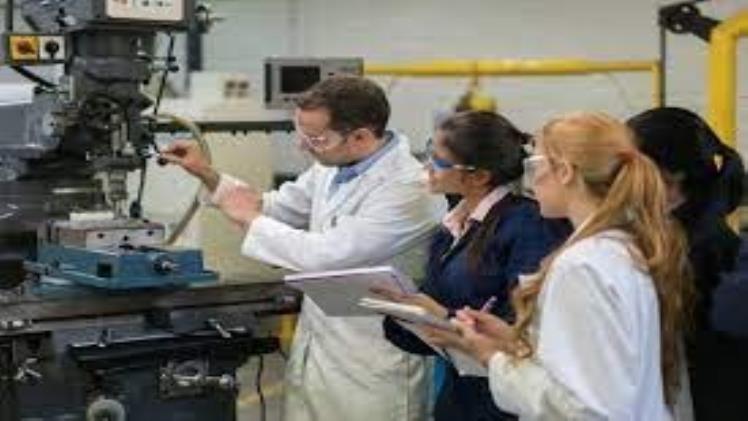Mechatronic Engineering At Northeastern University

Mechatronic engineering is an area of engineering that integrates mechanical, electrical, computer and robotic systems into products and machines. This rapidly developing field is propelling the development of smart devices such as cars, drones, airplanes and robots.
Mechatronics engineers create innovative products using electronics, computers, sensors and actuators. Their mission is to produce cost-effective designs that boost production efficiencies.
They work in a range of industries and settings, such as manufacturing, aerospace, pharmaceuticals and technology companies. Many spend considerable amounts of time working at test facilities or out in the field observing production processes and trialling new ideas before they’re integrated into a company’s infrastructure.
Northeastern’s Mechatronic Engineering Program equips students with the education and practical experience they need to excel in this rapidly advancing industry. Our curriculum integrates mechanical, electrical and computer engineering principles while taking an interdisciplinary approach that incorporates manufacturing technologies into the creation of smart automated devices and systems.
You’ll gain insight into electrical and mechanical engineering, circuits/electronics, programming, microprocessors, control systems, automation and robotics. Your four required blocks of co-op provide nearly a year of paid hands-on experience in industry before graduation – providing you with the career skillsets needed to excel in this exciting field.
Please visit for more information: SW418 Login
Employers in this field are always on the lookout for qualified, experienced individuals with a strong engineering background. They require engineers who can comprehend and translate complex physical principles into workable solutions that require minimal upkeep or repair.
A successful mechatronic engineer must possess excellent communication and attention to detail, as well as leadership qualities. They are capable of working independently or as part of a team. Furthermore, these professionals possess analytical and problem-solving abilities which enable them to make creative and practical suggestions for improving existing systems or creating new ones.
Mechatronics has applications across virtually every industry. From airplanes and sorting/packaging systems on manufacturing lines to drones, many designs incorporate mechatronics components.
Mechatronics is widely employed in the automobile industry to design anti-lock braking and tire pressure monitoring systems. These devices use sensors to detect and send information about each wheel or tire’s condition to an electronic control system, which then interprets this data and uses it for stopping, cutting fuel consumption, or alerting drivers about potential accidents or breakdowns.
Other examples of mechatronics systems found around us include smart doorbells and smartphones. These devices utilize sensing, actuation and control to perform functions such as motion sensing, real-time video capture and voice recognition.
Mechatronics encompasses many areas, but these are just a few examples of its revolutionary effects on how we live and work. This field is rapidly growing in importance to the advancement of our industry.
Mechatronics is one of the fastest-growing specialties in manufacturing, and its growth is expected to accelerate even faster over the next decade. To meet the demands, there will be an ever greater need for engineers who are willing to design, test and implement cutting-edge systems that keep our industries running efficiently.